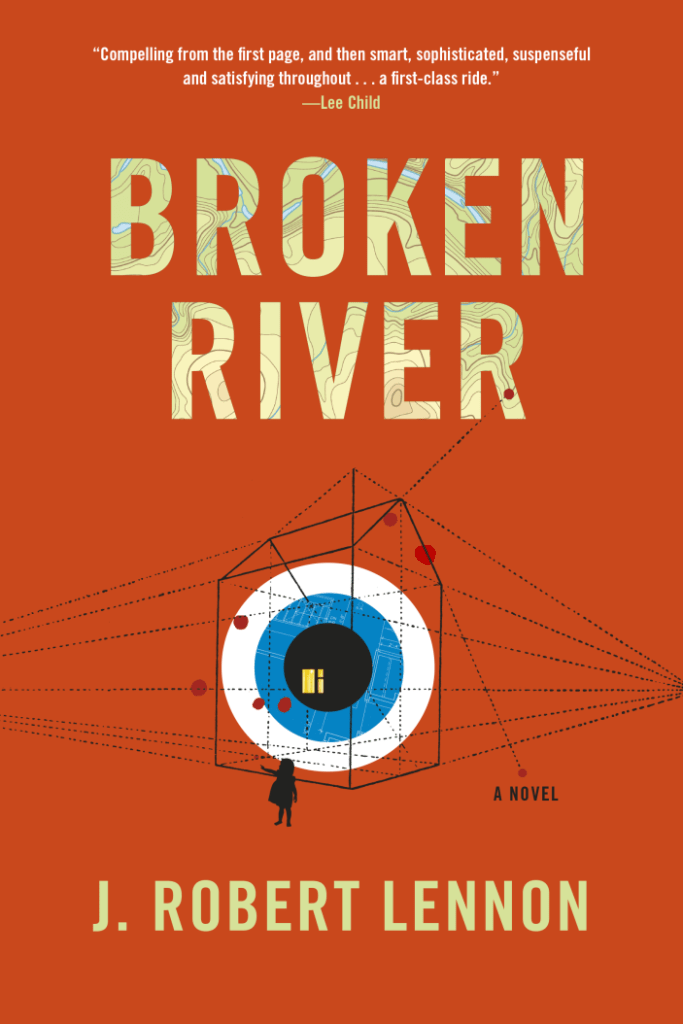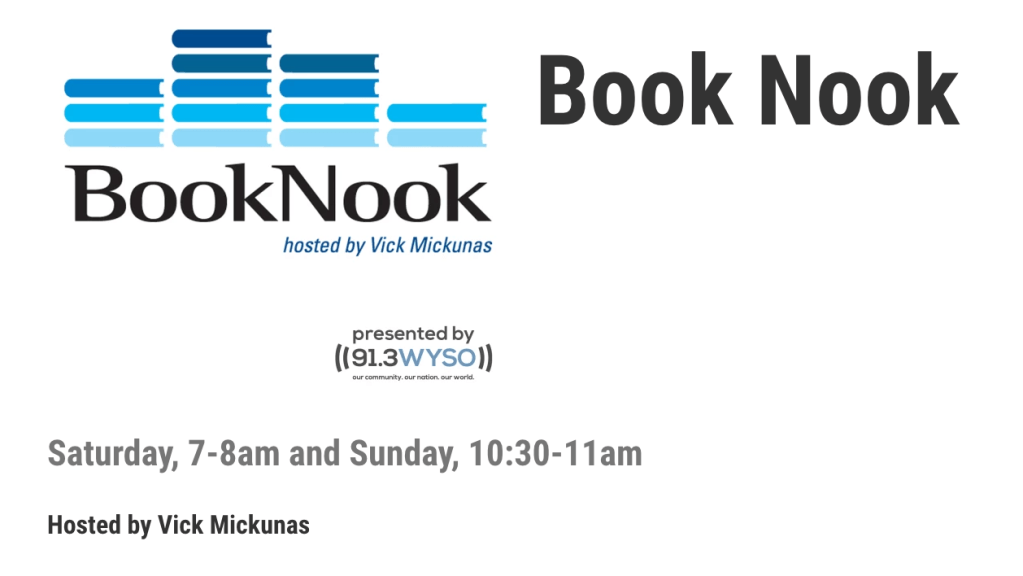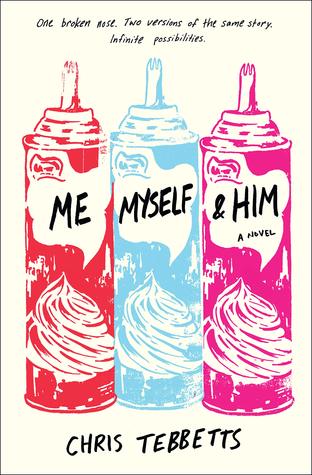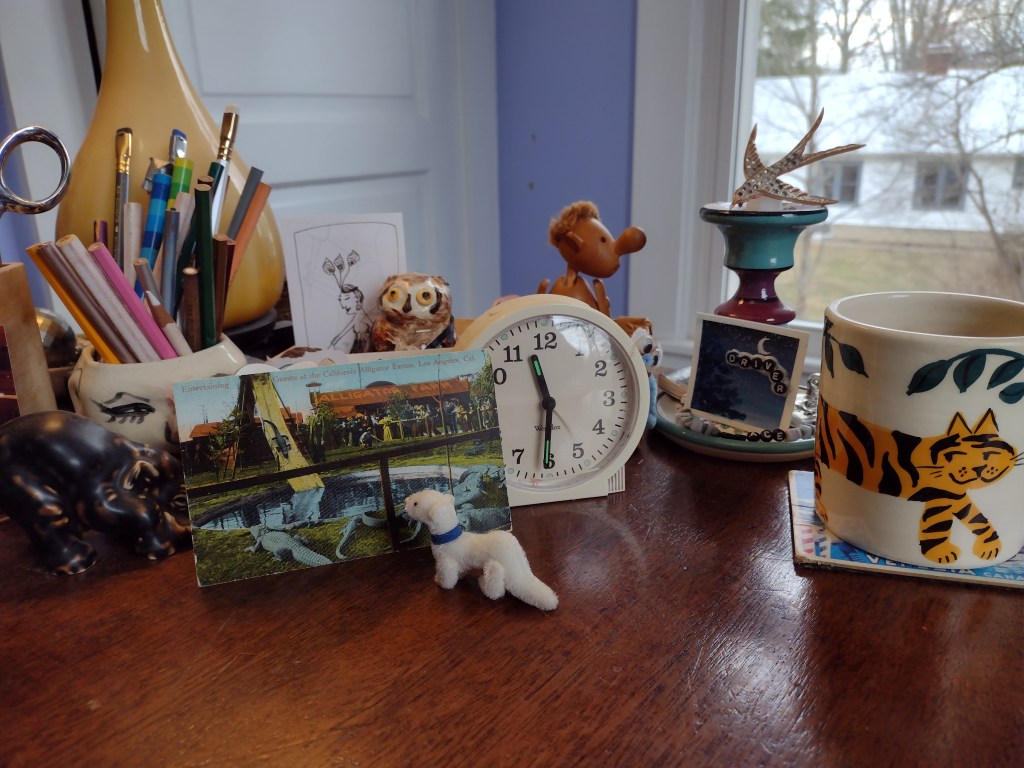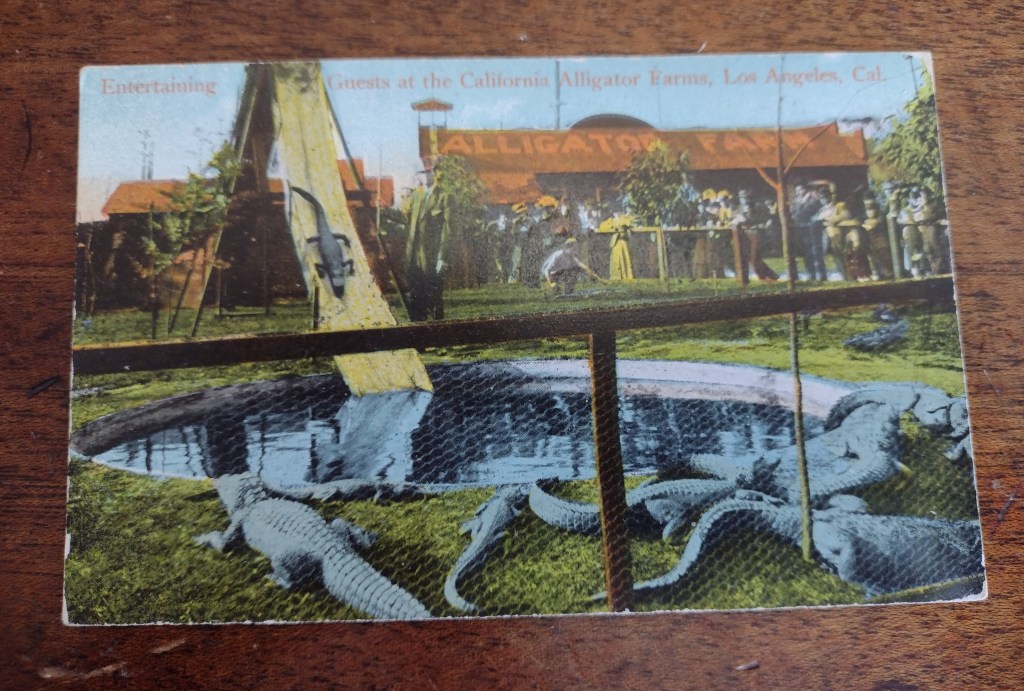My dear husband recommended I read Broken River by J. Robert Lennon because it features an inventive character called the Observer, and it’s also about a house, and what the house contains. (I’m kind of always writing about houses and what they contain, which is why Robert suggested I read this novel.) The Observer character evolves over time within and outside of several carefully constructed and smartly intersecting narratives. Overall I found the book really well made and engaging. It’s creepy in all the best ways (which is maybe evident from one glance at the cover). I recommend you read it especially if you want to see how someone can make something intricate and also smartly accessible, that isn’t shaped like most traditional narratives.
Here are some bits I particularly love—as is the case often in my posts, these passages are torn from context but maybe that doesn’t matter?—and maybe you will see why I love them. (Also, I have never seen anyone write about those weird tube men, and how brilliantly Lennon does so, below!):
p. 26: “In any case, the identity of, fate of, and story behind the previous inhabitants of the house is something Irena intends to research while she is here. If the results are interesting, maybe she can incorporate them, somehow, into her novel. Because at the moment, the novel has no real plot—it’s just descriptions of things. That’s what Irina is good at. She believes that she inherited this deficiency from her father, who is a visual artist and does not require narrative to make something of value. But if that’s her cross to bear, she will do it stoically.”
p. 118: “The observer lets her go. It is time to turn its attention to the family many miles to the north, though the Observer is increasingly aware that it needn’t choose one time, one place, on group of human being to attend to. Indeed, it is quite capable of observing anything, all things. But it has begun to recognize that its purpose, as opposed to its ability, is limited: or, more precisely, its purpose is to be limited. It is unconcerned with, bored in fact by, the enormity of its power. It is interested only in the strategic—the aesthetic—winnowing of that power.”
p. 119: “Of course the humans die. Quite possibly all of them. Perhaps the Observer will die as well; it doesn’t know, and it can’t imagine what it would do differently if eventual death were a certainty. But the humans, it suspects, know. This is likely why, years ago, at the beginning of the Observer’s existence, the murdered man and woman screamed, even before any damage was inflicted upon their bodies: they were justifiably fearful that their lives were about to end. If the humans know that death is coming (and, by the Observer’s standards, it would seem that it tends to come very soon), their words and actions must all be profoundly influenced by that fact. They fear making wrong choices, so they avoid making any at all. They keep very still, hoping that death might fail to take notice of them.”
p. 158: “Of course Eleanor wouldn’t have it any other way. She is not one of those parents who believes that her child must find a tribe, invest herself in society, hide her eccentricities in an effort to blend into the group—even though these are the lessons she herself was taught, and shat she has historically done, and what, despite her engagement in ostensibly solitary pursuits, she is presently doing for a living. No, what she wants for her daughter is intellectual and creative self-actualization without compromise. In other words: Don’t be like me. Be like your father.”
p. 203: “By hour three of her journey here, her lower back ached with a familiar, almost homey, pulsing intensity that bordered on nausea. She had completed the decrepit-barn-and-speedway portion of the trip and had entered the domain of inexplicable traffic lights, roadside diners, and auto dealerships outlined in colorful flags and punctuated by convulsing forced-air tube men. (She doesn’t understand the tube men. They catch the eye, yes, as only a madly flailing twenty-foot-tall monster can; but who decided such a sight could make you buy a car?) Sewn-on smile notwithstanding, the tube men appeared to her earnestly, even violently repulsive. Turn back, their frantic motions seemed to say. There’s danger here. We’re tall enough to see over the trees, and only nightmares await.”
